Though we aim to discuss a wide breadth of films each year, few things give us more pleasure than the arrival of bold, new voices. It’s why we venture to festivals and pore over a variety of different features that might bring to light some emerging talent. This year was an especially notable time for new directors making their stamp, and we’re highlighting the handful of 2021 debuts that most impressed us.
Below one can check out a list spanning a variety of different genres, and many are available to stream here. In years to come, take note as these helmers (hopefully) ascend.
Azor (Andreas Fontana)
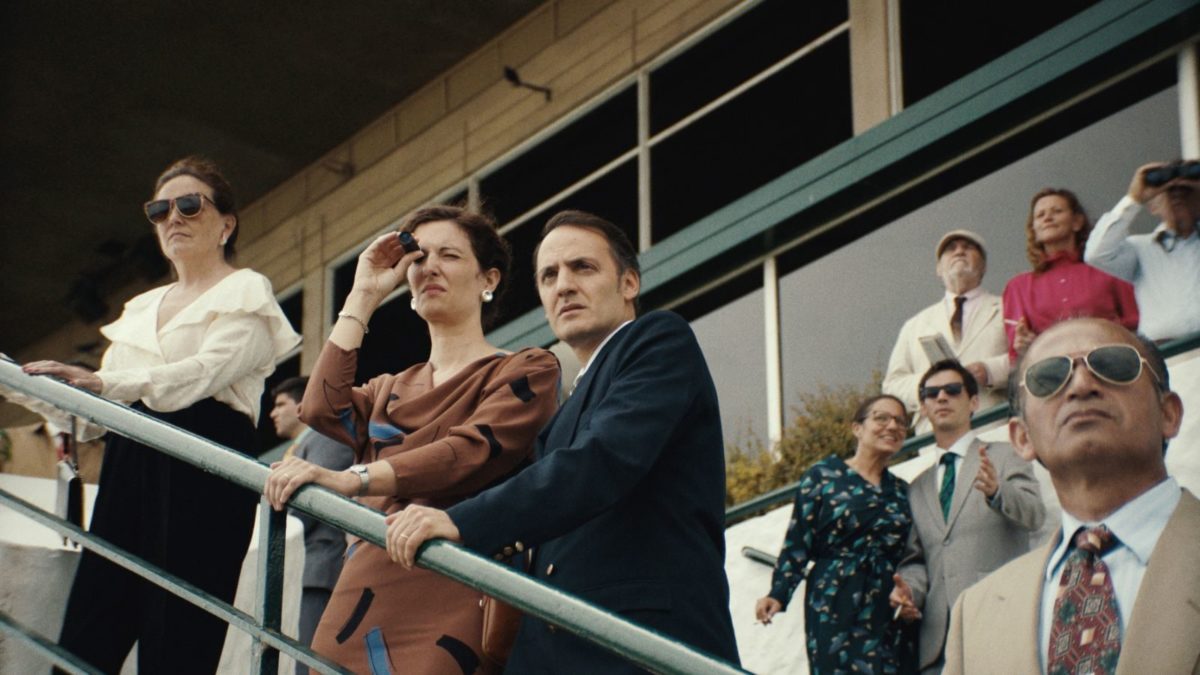
An almost suffocating air of secrecy permeates Azor, a Swiss-Argentinean coproduction concerning the mutual suspicion and damnable complicity of patrician North Atlantic capitalism and repressive regimes in the postcolonial Global South. The year is 1980, and a private banker from Geneva circulates among the Buenos Aires elite. This is at the height of the Dirty War, though so absolute is the Swiss banker’s discretion—so clean his hands—that the military junta’s crimes against its people feel as suggestively peripheral to the film’s narrative as the word “disappeared” implies. Filmmaker Andreas Fontana’s debut feature is a film of almost Le Carréan subtlety, of oblique plotting, crouching dialogue, and guarded performances masking sinister realpolitik. – Mark A. (full review)
Faya Dayi (Jessica Beshir)
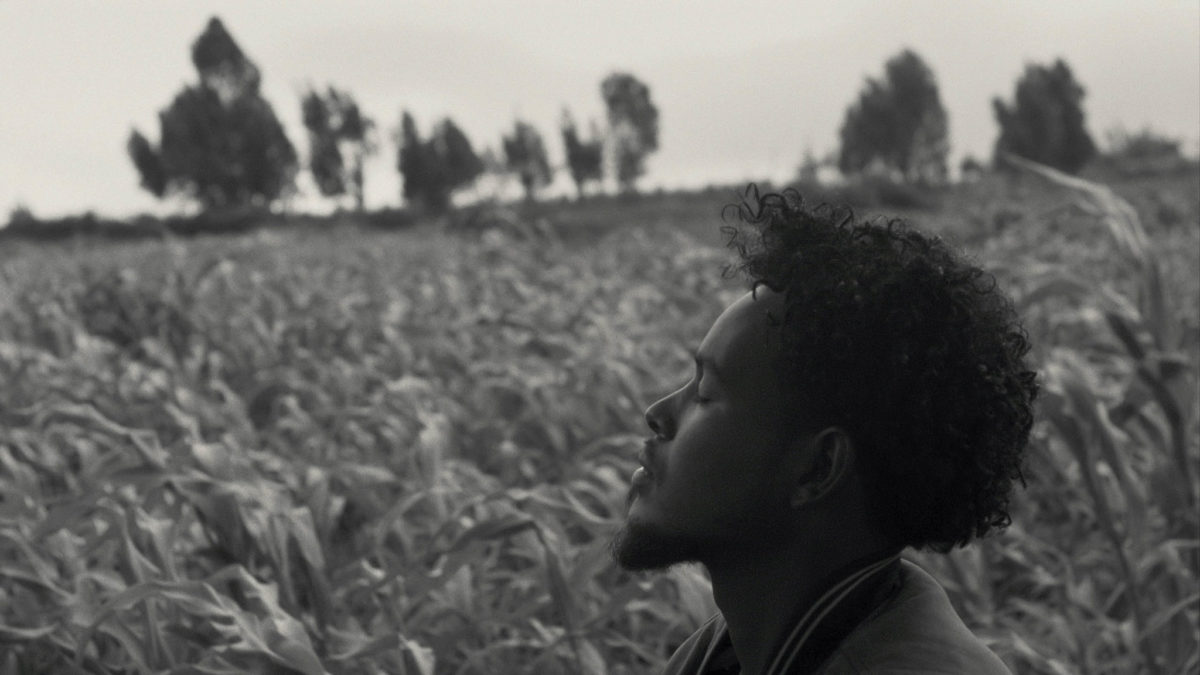
“Look how far God has brought us. We can only go where God guides us to. We are exactly where God wants us to be.” These are the first words spoken in Jessica Beshir’s ruminative and ravishing feature debut Faya Dayi, and it establishes a conversational dialogue with a higher realm that carries through the rest of this graceful, ethereal journey through Ethiopia. Specifically exploring the trade of the khat leaf––a hallucinatory plant used by Sufi Muslims for religious meditation but has now become Ethiopia’s most lucrative cash crop––Beshir deeply immerses the viewer into daily work, spiritual ponderings, and questions of life’s purpose. At times recalling Apichatpong Weerasethakul’s striking black-and-white debut Mysterious Object at Noon and the vivid chiaroscuro work of Pedro Costa, Faya Dayi shares a similar approach to mixing documentary and narrative elements to form a transportive ethnographic survey. – Jordan R. (full review)
Identifying Features (Fernanda Valadez)
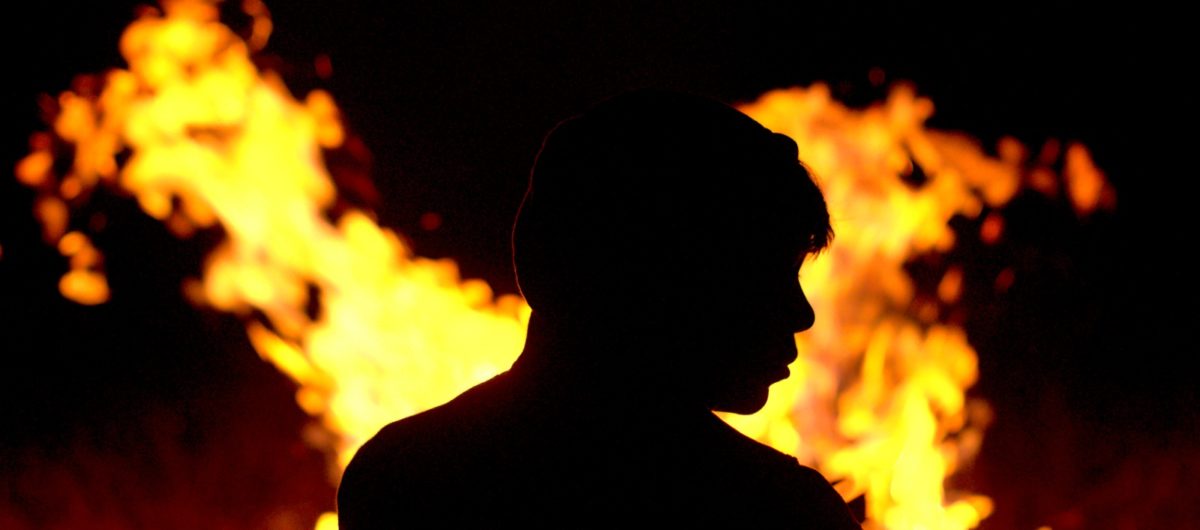
Fernanda Valadez’s Identifying Features is without a doubt one of the most visually striking and haunting films of the year. It follows worried mother Magdalena (Mercedes Hernández) in search of her missing adult son who attempted to cross the border from Mexico to the United States. It’s a perilous journey during which we see how Magdalena is just one of so many desperate people in the same situation, treated as unimportant by the powers that be. – Orla S.
The Inheritance (Ephraim Asili)
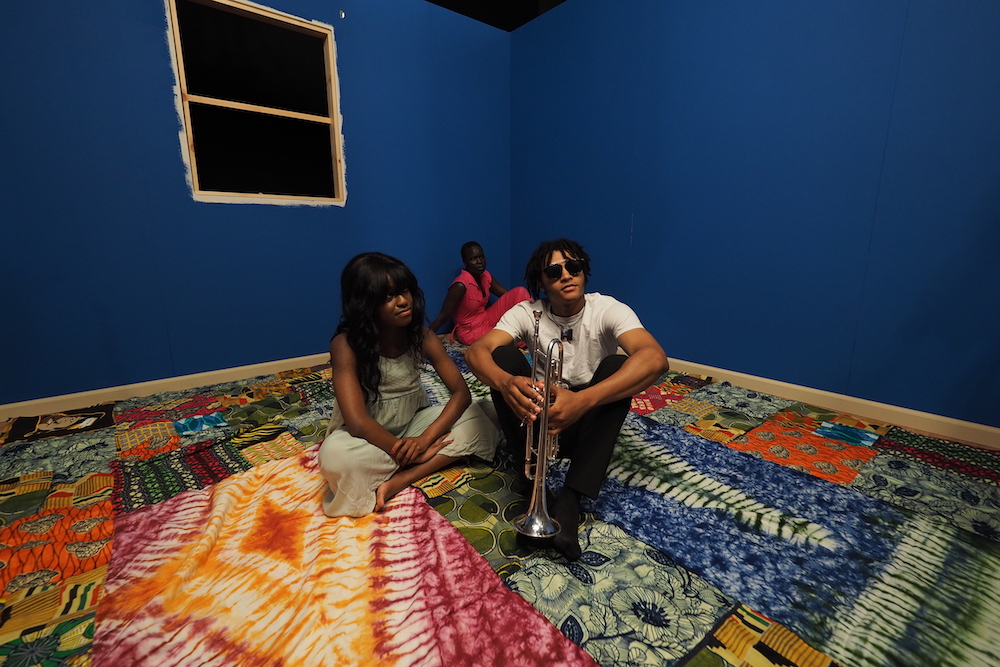
History, art, ideology, and love make up the four pillars of Ephraim Asili’s The Inheritance, a thrillingly alive debut feature that resides both inside the square rooms of a West Philadelphia house and outside the boundaries of genre. As its title suggests, to assume the past experiences, lessons, and artistic creations of others can be liberating. But there’s also great personal responsibility to pass on that knowledge in some productive way. – Glenn H. (full review)
The Lost Daughter (Maggie Gyllenhaal)

One of the particular pleasures of The Lost Daughter, actress Maggie Gyllenhaal’s debut feature as a director, is wondering which of the handful of sizeable female roles in the film she’d best excel at playing. Would it have been Olivia Colman’s, the literature lecturer Leda in the film’s present-day thread? Or even the younger version of the character, incarnated by Jessie Buckley, in a way that you can just about see the imperious matriarch she would grow into. There’s also a supporting role played by Succession’s Dagmara Domińczyk, with a Gyllenhaal-like gait––the kind of perky minor role she often found herself consigned to at prior stages in her career. To wit, in author Tom Shone’s recently published interview book with Christopher Nolan, the director offers the suggestion that a film’s lead actors consciously or unconsciously imitate the mannerisms of the director they’re acting for. – David K. (full review)
maɬni – towards the ocean, towards the shore (Sky Hopinka)
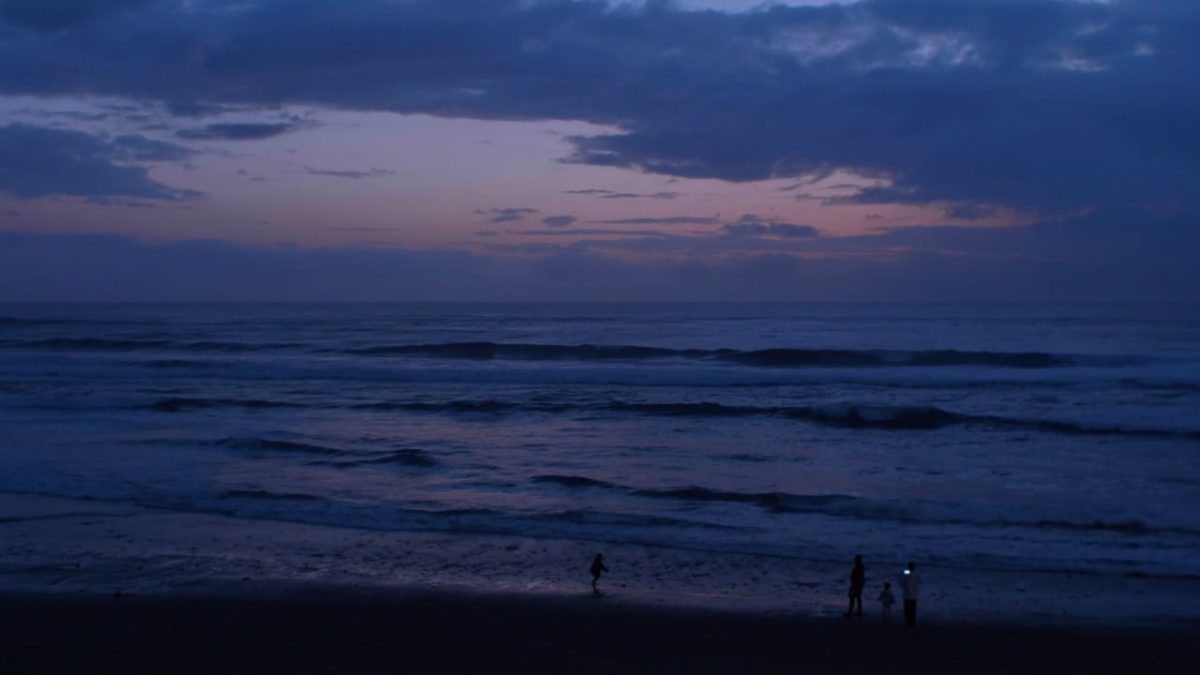
Ethnographic documentary has historically been used as a tool by colonial filmmakers to exoticize non-Western communities and cast themselves as white saviors. Sky Hopinka’s short films challenge that power dynamic in beautiful and inventive ways, experimenting with voice-over narration, inter-titles, music and sound design to explore how language, memory, and cultural history help strengthen identity. His fluid style always works in service of the oral histories and folklore of Native peoples that might otherwise go unrecorded and lost. With małni – towards the ocean, towards the shore, an elegiac and at times mesmerizing feature debut, Hopinka examines how mythology continues to inform the work of younger Chinookan generations who are carving out their own path in the Pacific Northwest. – Glenn H. (full review)
Mass (Fran Kranz)
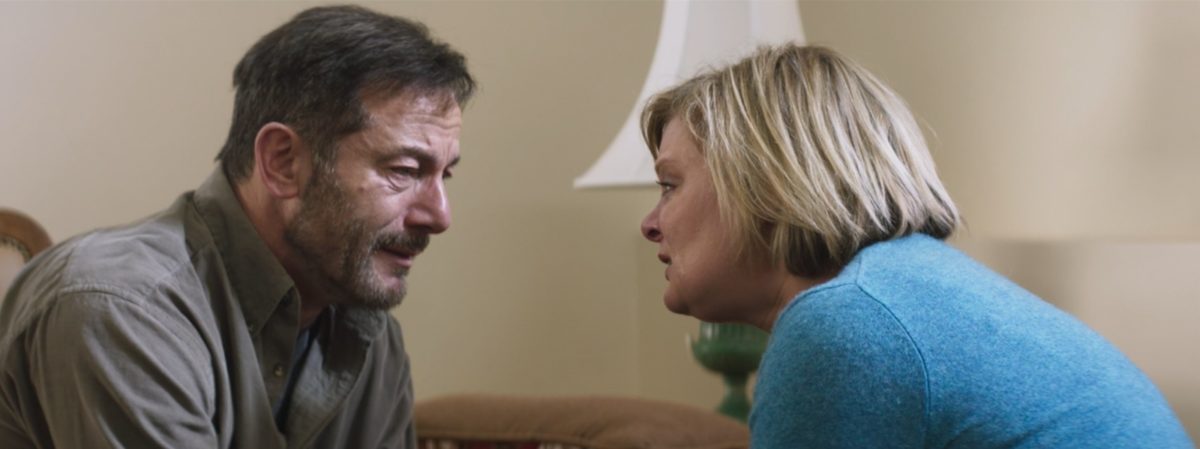
Set in the meeting room of a modest Episcopalian church, two couples meet under tragic circumstances. For his directorial debut Mass, accomplished actor Fran Kranz is determined to wring out four incredible performances from four incredible character actors through the discussion of an extremely tough subject. It is mission accomplished as Kranz succeeds in finding understanding in the unthinkable. – Dan M. (full review)
The Novice (Lauren Hadaway)
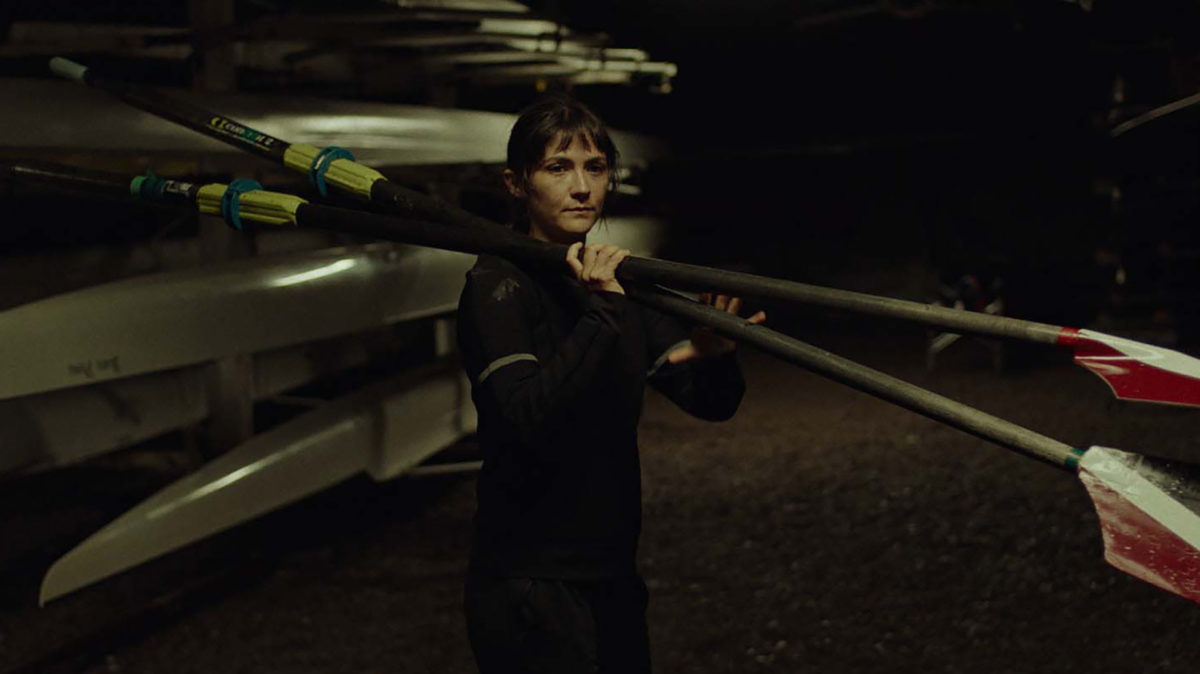
The Novice may be the feature debut for writer-director Lauren Hadaway, but it’s not her first rodeo on a film set. A veteran from the sound departments of films ranging from Whiplash to The Hateful Eight, the filmmaker uses every piece in her toolbox—editing, camera movement, masterful sound design—for this tale of a collegiate rower (a committed Isabelle Fuhrman) on an obsessive quest to reach the top of her team, no matter the cost. – Mitchell B.
Passing (Rebecca Hall)
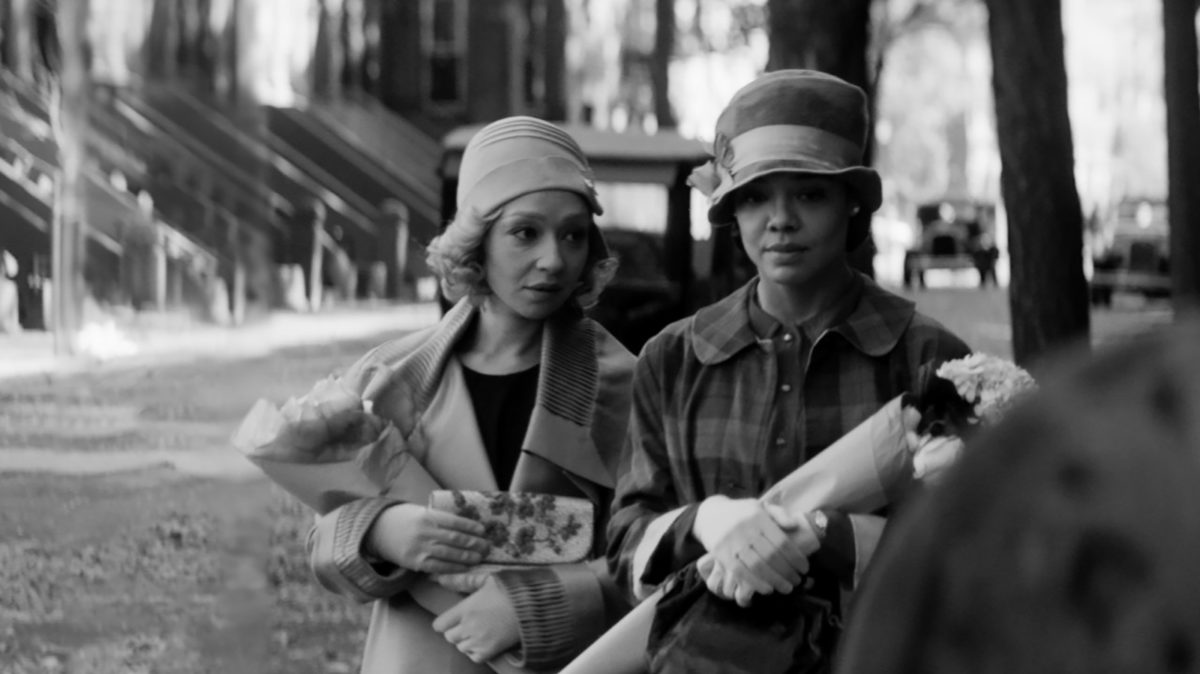
Rebecca Hall’s Passing has been fifteen years in the making, and that dedication shows in every meticulously crafted frame. Adapted from Nella Larsen’s 1929 novel, the tense, black and white psychological drama is a study in intentional filmmaking. Every detail is an obsession with symbolism and performativity, from the by-turns absent and invasive score courtesy of Devonté Hynes to the elaborate period wardrobe from Marci Rodgers, to the affect with which stars Tessa Thompson and Ruth Negga speak. This obsessiveness folds in on itself, creating a layered profile of reunited childhood friends Irene Redfield (Thompson) and Clare Bellew (Negga) whose muffled desire for one another exposes devastating cracks in each of their lives. By turns stifling and lucid with seduction, Hall’s debut is impressive, even when its atmosphere sometimes overtakes its pace. – Shayna W. (full review)
Pig (Michael Sarnoski)

Pig will be a victim of expectations. While marketed as Nicolas Cage’s equivalent to a darkly comic and surreal John Wick, and though a study of the desire for vengeance to an extent, it is not a revenge film—one that provides no violent catharsis for its blood-soaked protagonist. Pig is rather about the increasingly fragile connections we make as human beings and the isolationist tendencies that can infect our lives after experiencing harrowing grief. With director Michael Sarnoski subverting expectations from the start, the experience is ultimately a rewarding one. – Logan K. (full review)
El Planeta (Amalia Ulman)

In a café in Gijón, Spain, Leonor (Amalia Ulman) sits with a cup of coffee. An older man (Nacho Vigalondo) approaches her and joins her, and the two start discussing some sort of transaction. She’s considering sleeping with him for money, but then she reconsiders. “I’m wondering if it’s worth sucking a dick for a book.” Like Leonor’s own little gig economy she’s come to, this is one of the many vignettes El Planeta finds itself in. She was a fashion student in London before, but now that her father (and cat) has died, she’s home living with her mother (Ale Ulman), who’s facing eviction. The unemployment office has failed them and their time is scarce. Naturally, they start grifting to get meals and lower their bills. If someone else can pay for dinner, that’s great. If Leonor can sit in the hallway to read so she doesn’t have to turn on the lights, that adds up too. I’d be sad if it didn’t have such a droll approach. In some ways, it is. El Planeta isn’t the most thematically consistent, but it’s clever and brisk enough to be a good time. – Matt C. (full review)
Shiva Baby (Emma Seligman)

It is apropos that Emma Seligman’s Shiva Baby is screening in the Toronto International Film Festival’s Discovery platform. It is a discovery, in every sense: the discovery of a new comic voice behind the camera, the discovery of a note-perfect star in lead actor Rachel Sennott, and the discovery of a viewing experience that is at once hilarious, awkward, uncomfortable, and unforgettable. Shiva Baby is a blast of energy and from its first moment to its last Seligman finds the right balance. There is genuine suspense, if not horror; the score, by Ariel Marx, could just as easily fit a summer camp slasher flick. But the greatest feeling for the audience––after discomfort––is excitement. – Chris S. (full review)
Slalom (Charlène Favier)
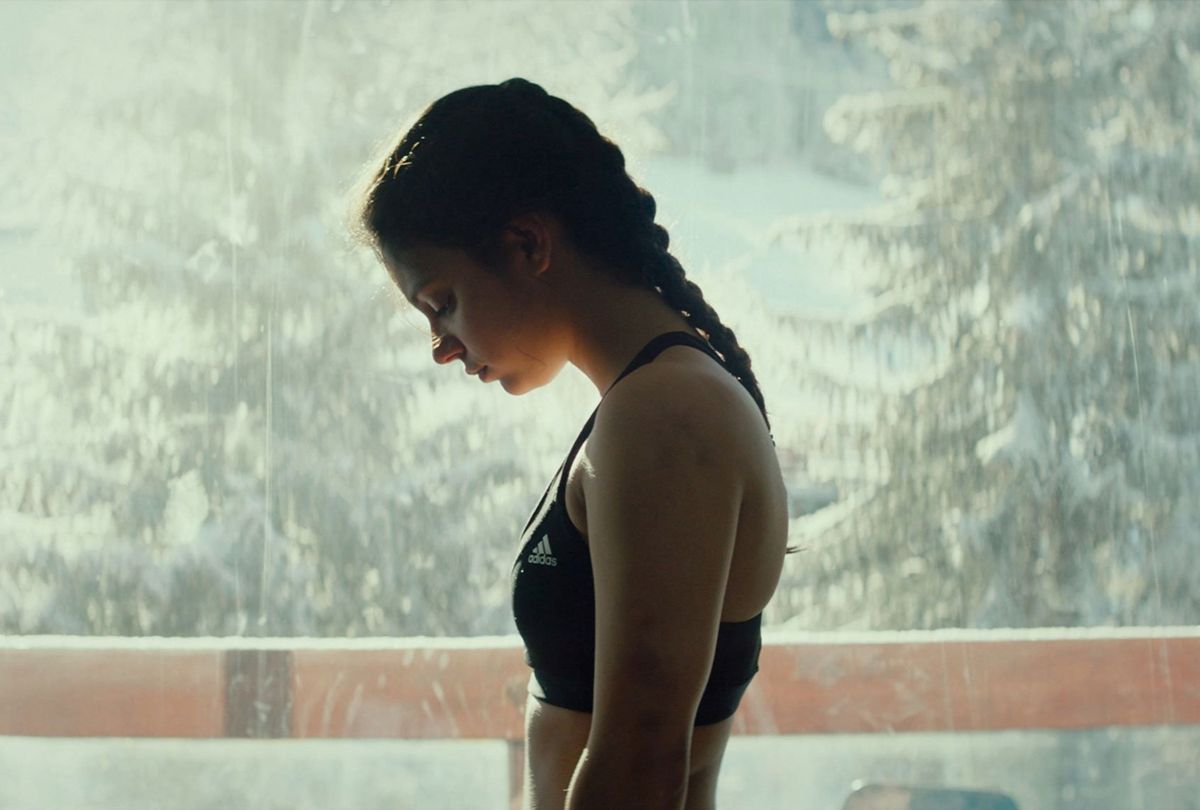
A chilling, controlled pressure cooker of a film, Charlène Favier’s Slalom brings attentive nuance to a story of psychological and sexual abuse. Set amongst the slopes of the French alps, the Cannes-selected drama centers on Lyz Lopez (Noée Abita), a 15-year-old skiing prodigy whose life is more or less controlled by her callous instructor Fred (Jérémie Renier). With his predatory advances shrouded and twisted in the mutual desire for competitive success and filtered through the young girl’s initial intrigue, Favier expertly delves into the psychological prison that soon becomes her daily existence. Far from a one-note #MeToo message movie, Slalom brings a poignant sense of restraint with fleshed-out characters for a thoroughly unnerving experience. – Jordan R. (full review)
Slow Machine (Joe Denardo and Paul Felten)

It’s rare that a new American film feels genuinely alive with possibility from beginning to end. So many of the logistical, economic, and technological decisions that go into making a movie in the United States are designed to suffocate artistic vision in favor of audience accessibility. Which means something infinitely strange and fractured like Slow Machine feels all the more essential, an eccentric celluloid shape-shifter shot on 16mm that playfully upends the tropes of narrative storytelling. – Glenn H. (full review)
Summer of Soul (…Or, When The Revolution Could Not Be Televised) (Amir “Questlove” Thompson)

The biggest block party of 1969 took place over six weeks in central Harlem. Clustered together into the rocky confines of Mt. Morris Park (now Marcus Garvey Park), 300,000 people spent their summer grooving to a free outdoor concert series that featured some of the world’s best gospel, blues, and R&B singers alive. At the intersection of the country’s racial and social revolution, the “Harlem Cultural Festival” offered a cathartic and electric musical experience for those in attendance, combining song and spoken word that inspired and unified. It was also largely forgotten. Which makes Summer of Soul (…Or, When The Revolution Could Not Be Televised) both a documentary and a rectification of history. – Jake K. (full review)
Test Pattern (Shatara Michelle Ford)

Every new romance begins with the fantasy of everlasting happiness. Film as an art form is adept at capturing the intensity of euphoric early moments shared between two love-struck people discovering each other for the first time. Audiences know this is merely a precursor to the reality and heartbreak that comes next, but we still flock to love stories nevertheless. Shatara Michelle Ford’s Test Pattern is one of the most unique and sobering deconstructions of this classic construct. The cutesy first act finds corporate manager Renesha (Brittany T. Hall) falling in love with hipster tattoo artist Evan (Will Brill) after they meet-cute at a bar one night. While their early conversations are stilted and groggy, the two are drawn to each other in ways that are not entirely explainable. Honeymoon phases rarely make a lick of sense. – Glenn H. (full review)
Honorable Mentions
